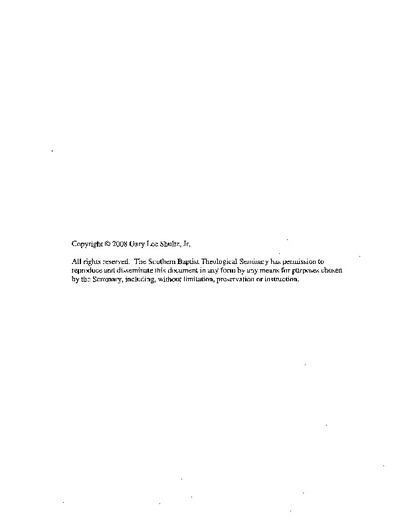| dc.description.abstract | The purpose of this dissertation is to develop, explain, and defend, both biblically and theologically, a multi-intentioned view of the extent of the atonement. A multi-intentioned view holds that God had general intentions in the atonement that included the nonelect, and particular intentions in the atonement only for the elect. Chapter 1 provides an overview of the evangelical debate concerning the extent of the atonement, explains the need for a multi-intentioned view, and defines the multi-intentioned view.
Chapter 2 is a survey of the historically significant views on the extent of the atonement. The views of Augustine, John Calvin, Theodore Beza, Jacob Arminius, Moïse Amyraut, Richard Baxter, John Owen, and John Wesley, as well as the views of the ninth century, medieval scholasticism, and modern evangelicalism, are explained. This chapter presents the context of the debate and demonstrates the need for a multi-intentioned view.
Chapter 3 establishes the biblical and theological basis for understanding Christ's atonement as a payment for the sins of all people, elect and nonelect, by exegeting the relevant biblical passages. This biblical establishment is followed by an explanation of why an unlimited payment for sin does not entail universalism.
Chapter 4 provides a biblical and theological explanation of God's general intentions in the atonement. The atonement made the universal gospel call possible, provided an additional basis of condemnation for those who hear the gospel and reject it, provided common grace, provided the supreme example of God's character, and facilitated Christ's cosmic triumph over all sin.
Chapter 5 provides a biblical and theological explanation of God's particular intention in the atonement: securing the salvation of the elect. This intention is evident because of God's sovereignty throughout salvation, his special love for the elect, and the unity of the Father and the Son in salvation. Christ accomplished the securing of the salvation of the elect by sending the Spirit to apply salvation to the elect on the basis of his atonement.
Chapter 6 recapitulates the findings of the dissertation, offers some practical implications, and proposes some further areas of study concerning the multi-intentioned view. | en_US |

